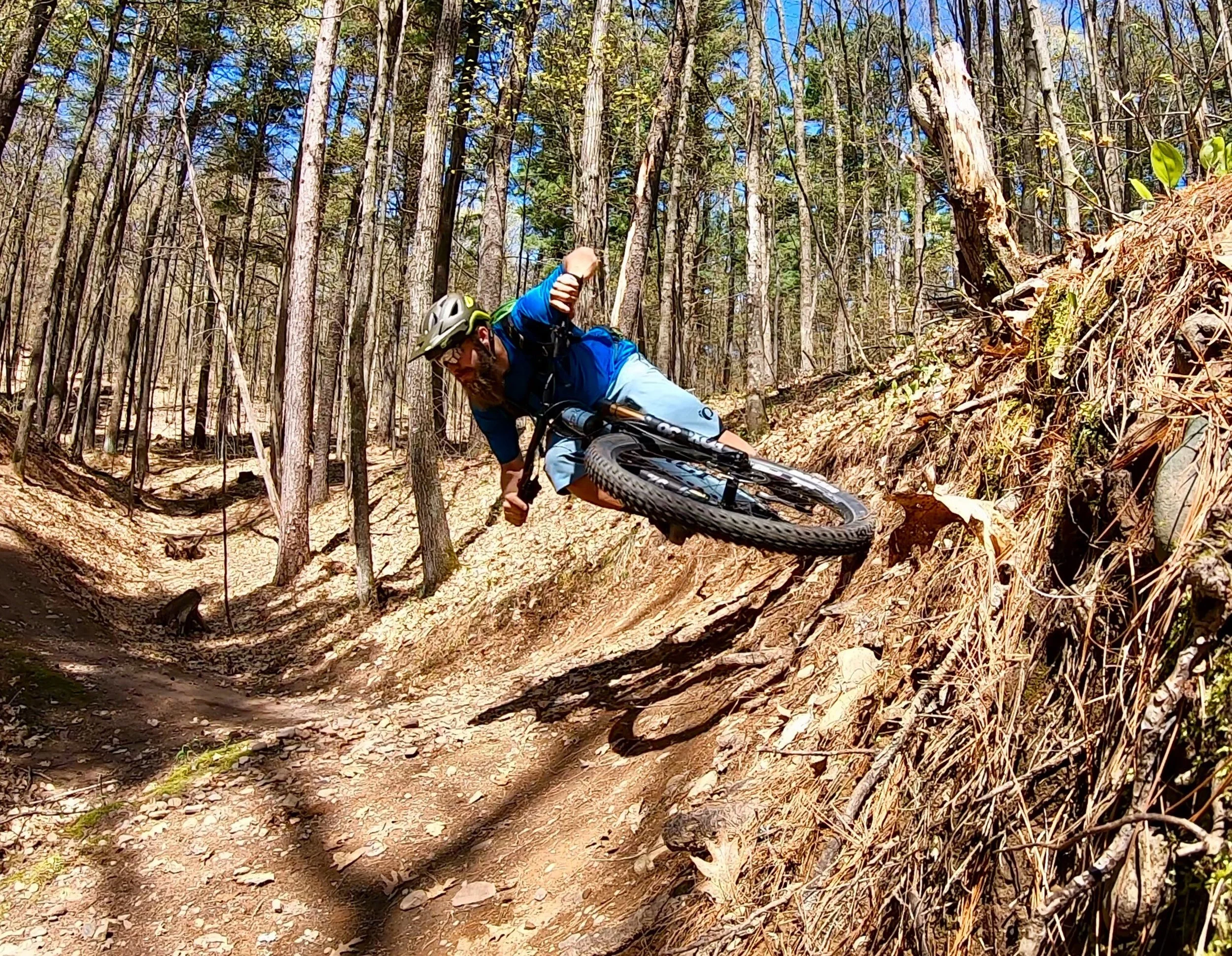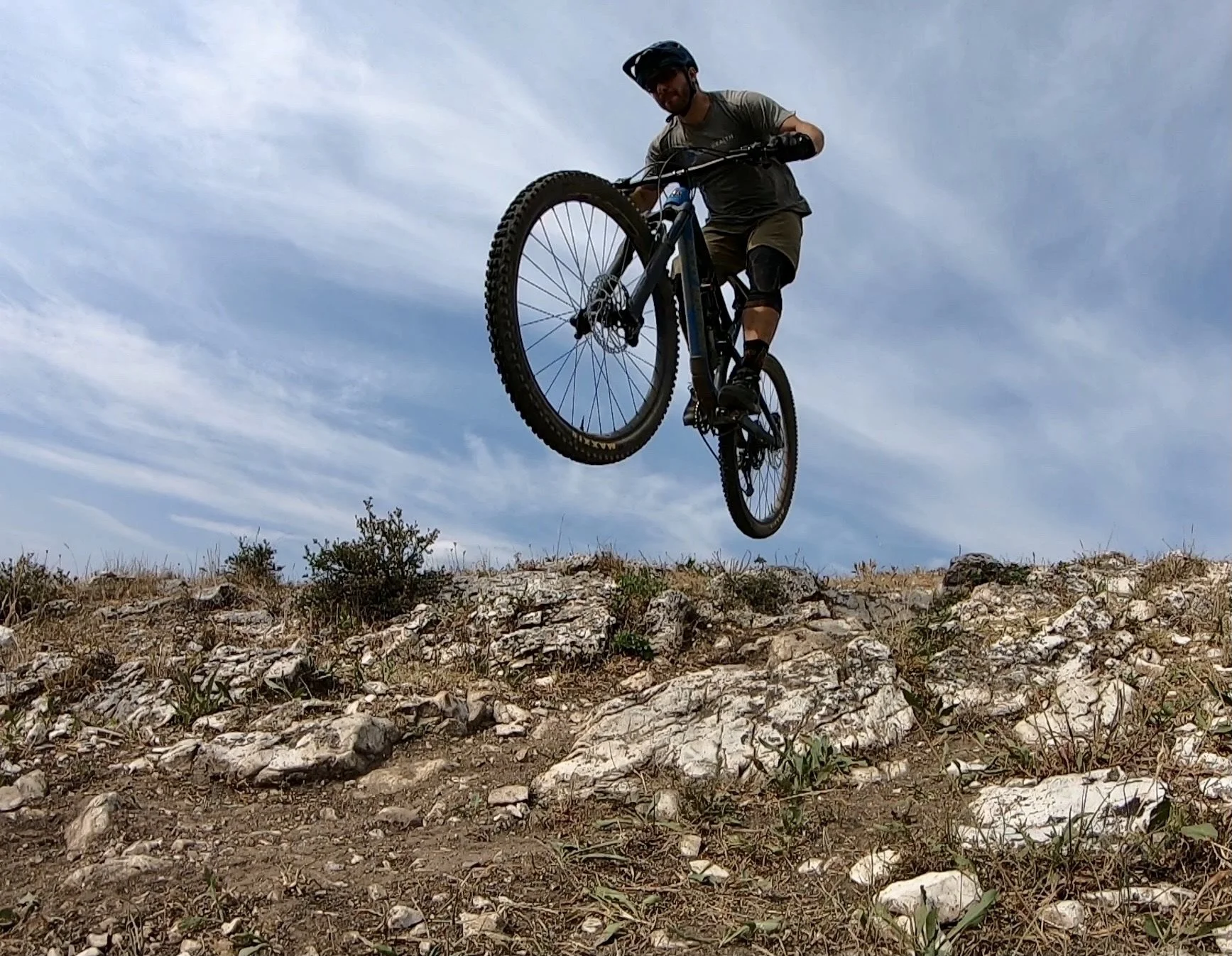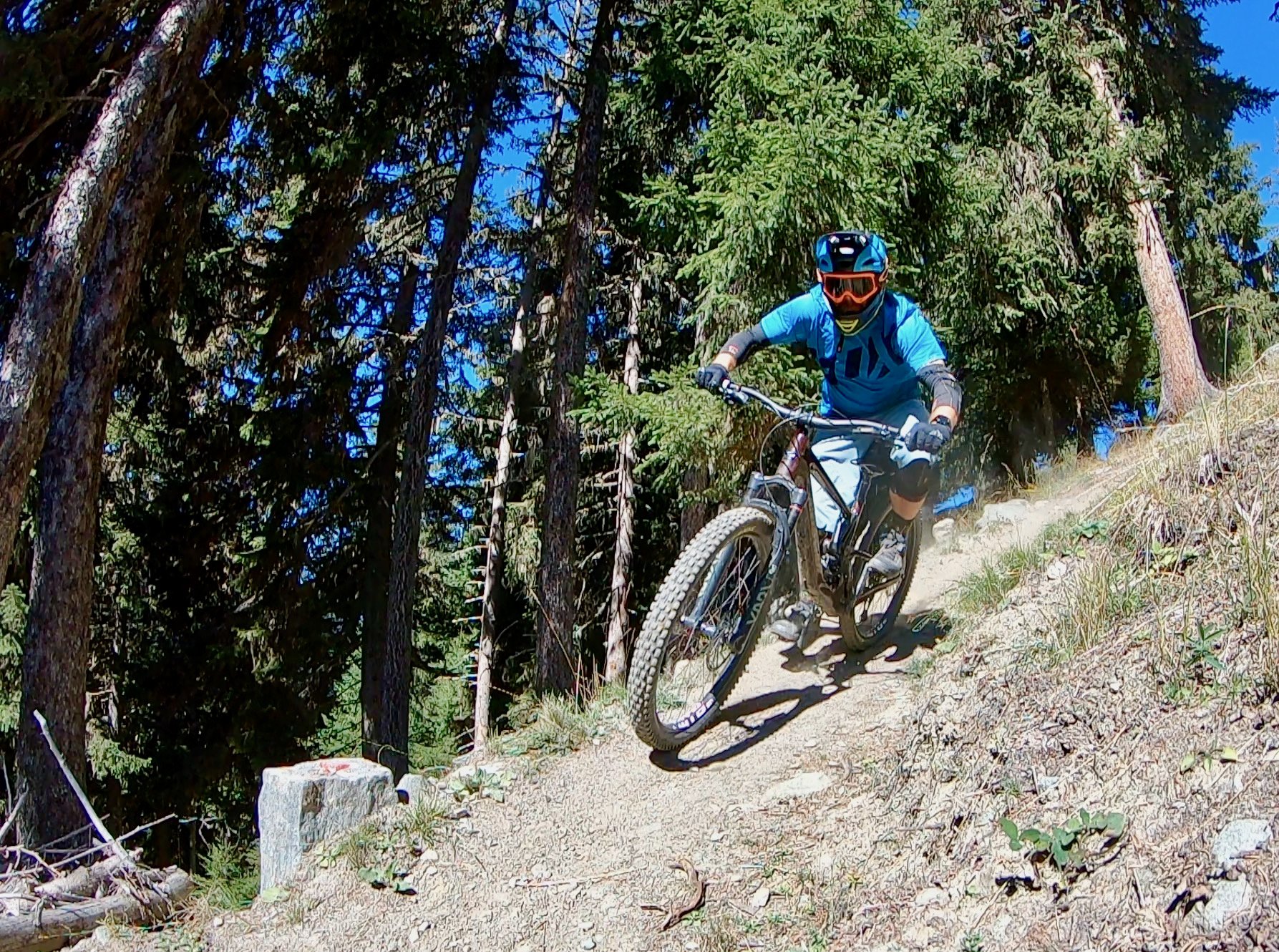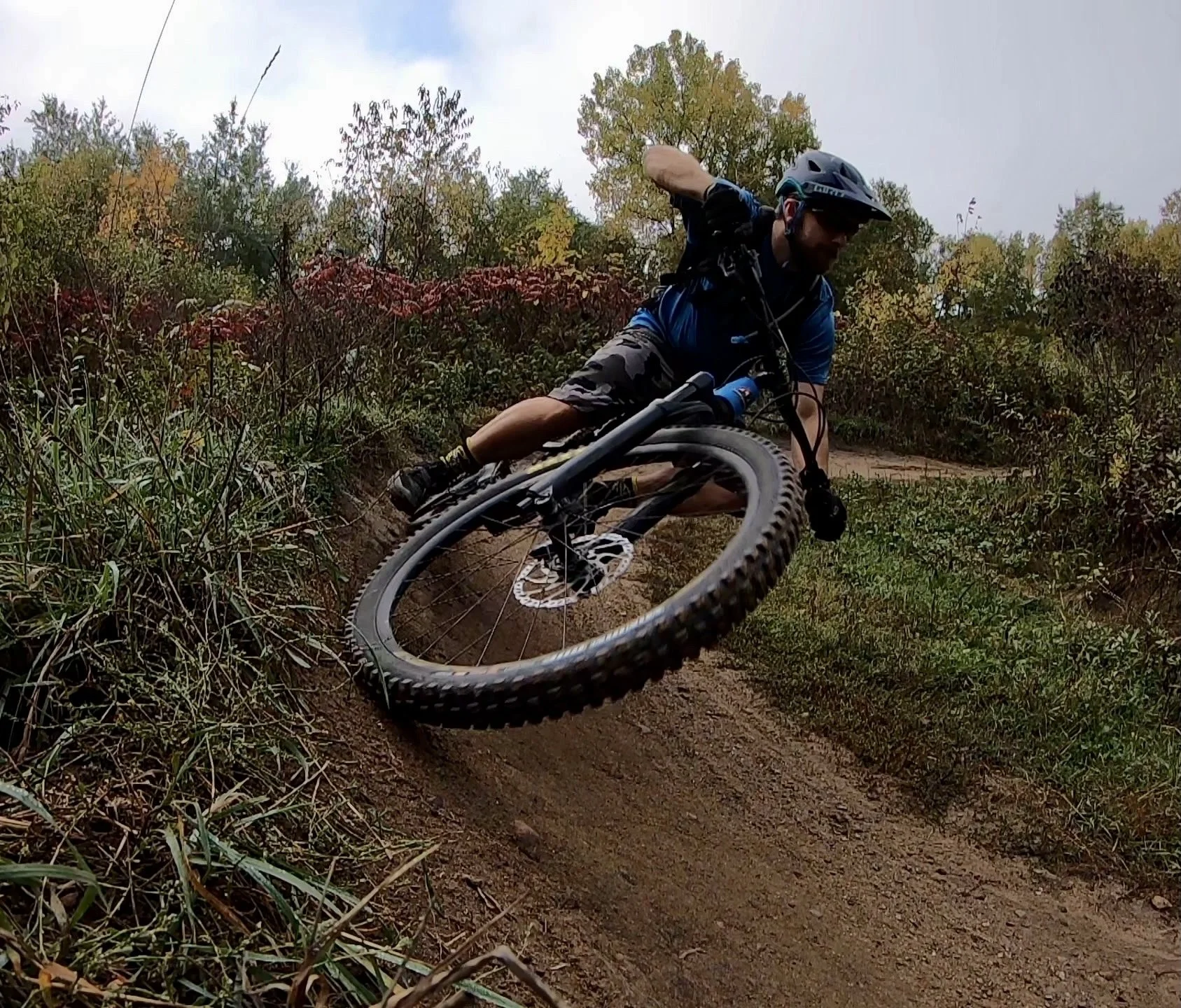The Purpose of Life: Reaching Flow
Hayward, Wisconsin
I am no longer deluded into thinking that there is any sort of grand purpose to life. I used to spend days—years, even—searching for my "purpose," the thing that I thought I was "put on this earth to do." But if nobody is there to put you down on the earth, there isn't any sort of grand purpose to be imparted from on high, now is there?
Instead, I think we each get to choose what our purpose in life is. We get to choose what "success" means to us.
Or sometimes, our life purpose might reach out and choose us instead.
One day, it struck me that I might actually have a purpose in life after all. Before, I didn't have words to describe it, and I didn't make a conscious effort to pursue it. Yet when I stepped back and thought about my values, thought about what my day-to-day life seemed to indicate that my purpose might be, I realized that perhaps my overarching, grand purpose in life is simply to achieve a flow state as often as possible.
It was hiding under my nose the entire time, and I didn't quite have the words to describe it until I read a few books on the topic.
The pivotal book that gave me the tools to fully describe what I was experiencing was The Rise of Superman: Decoding the Science of Ultimate Human Performance by Steven Kotler. Still, the topic and even some of the terms weren't entirely new to me. The reason The Rise of Superman rang so true is that it jived with psychological studies I had delved into in my philosophy classes, and with the growing literature in the outdoor sports media on the same topic. (For a deeper philosophical appraisal of flow states, see: The Pursuit of Unhappiness: The Elusive Psychology of Well-Being by Daniel M. Haybron.)
Bozeman, Montana
In fact, Kotler venerates extreme sports athletes as the ultimate paragons of achieving flow, showing time and time again that for the best of the best, whether or not they can access a flow state dictates whether they'll live, or whether they'll perish. (And plenty do perish.) I realized that while I might not be a Shane McConkey (RIP), my life in many ways mirrored the lives outlined in this book. My first love was downhill skiing, and for well over a decade I shaped my life around the pursuit of snow, going so far as to abandon my childhood home at the age of 18 and move 1,500 miles away to the Rocky Mountains, never to live again in the Midwest.
In addition to downhill skiing, The Rise of Superman features rock climbers, wing suiters, BASE jumpers, and more. While I've never wingsuited or BASEd, I could definitely envision enjoying those sports... and I've spent years of my life enamored with rock climbing. While Kotler only briefly touched on mountain biking, anybody who's ridden singletrack knows that a flow state is absolutely critical for maximum performance... or even any kind of true performance, period.
So what is flow, anyway?
Kotler defines flow this way:
Flow is defined as an optimal state of consciousness, a state where you feel your best and perform your best. More specifically, the term refers to those moments of rapt attention and total absorption when you get so focused on the task at hand that everything else disappears. Action and awareness merge. Your sense of self vanishes. Your sense of time distorts (either, typically, speeds up; or, occasionally, slows down). And throughout, all aspects of performance, both mental and physical, go through the roof.
The term "flow" itself comes from Mihaly Csikszentmihalyi’s research on the topic. In many ways, he's the godfather of flow and is referenced heavily in Kotler's work.
Bozeman, Montana
While you can read more about what flow actually is here, the iconic flow state takes place regularly and frequently on a technical mountain bike ride. When the trail turns downhill and the terrain gets challenging, fast, and/or flowy, you can't think about each move of the bicycle, each reaction to the terrain, if you want to truly excel and ride superbly. Instead, you have to switch off your conscious mental faculties and simply act, simply be. You no longer think about your actions, you just do. You no longer think about the problems or stresses in your life, you no longer consider anything at all—you simply ride. Time disappears, and you merge with the bike, merge with the trail, and become one with the world around you. In this state, you don't have space for fear, don't have room for the thought of failure, and so the ride seems effortless, as if you are in complete and utter control of the bicycle. You and the bicycle are one.
This is flow.
But it's not just mountain biking…
Verbier, Switzerland
I recently read a follow-up that Kotler wrote to The Rise of Superman, co-authored by Jamie Wheal. Titled Stealing Fire: How Silicon Valley, the Navy SEALS, and Maverick Scientists Are Revolutionizing the Way we Live and Work, Kotler and Wheal explore the realization that the pursuit of "flow" is simply one way to achieve altered brain states, and that there are innumerable other ways to achieve an altered or elevated state. While flow on the mountain bike remains my personal favorite, the second book helped me realize so many places in my daily life that I've found to be inherently valuable and important. And almost all of the time, flow is involved:
Runner's high: While a decidedly different type of flow state, the endorphin-induced "runner's high" achieved by most any type of cardio, including gravel biking and road cycling, is the main reason I participate in these more vanilla sports as well. Interestingly, a good mountain bike ride can easily achieve both types of flow states, making it a double whammy.
Reading: From a young age, I have loved excellent fiction that allows me to become totally absorbed in the narrative, feeling and thinking as if I am the protagonist in the story. This is a perfect example of rapt attention and total absorption, when you get so focused on the task at hand that everything else disappears.
Writing: I hate writing when I'm bashing the keyboard to slam out text on a topic I don't give a shit about, but when I hit a flow state and the words just flow (see?) the feeling is downright magical. Without realizing it, I've spent most of my career fine-tuning the mechanics of accessing a writing flow state, so I can quickly and reliably drop into flow on an almost daily basis.
Music, especially live concerts: While I still absolutely love music, during a certain time in my life I spent an outsized amount of time driving to concerts. Music, especially live music, is a well-known inducer of flow. Musicians in a band also achieve a state known as "group flow"... at least, if they're playing good music.
Great sex: In Stealing Fire, Kotler and Wheal dedicate a lengthy section about achieving altered brain states through sex and orgasm. (Specifically, they focus on the female orgasm.) Reaching the point of orgasm almost always requires a flow state to get there.
I’ve even realized how flow was the core component of certain activities that I once participated in, but no longer do:
Video games: At one point I spent an inordinate amount of time parked in front of a television screen with a controller in my hand. I'm convinced that video game designers craft their games in such a way that they intentionally induce flow states, whether or not they use that terminology.
Religion: While I no longer worship any god (except for perhaps that of nature and flow), 28 years of my life were dominated by religious worship. In The Rise of Superman, Kotler points out the many ways that religious services are engineered to create group flow states, including some of the factors above, such as music. In Stealing Fire, Kotler and Wheal delve deep into analyzing communal experiences that achieve altered brain states. I remain convinced that the continuance of religious services around the world today is due in large part to their effectiveness at inducing flow in a population that (generally speaking) may not achieve flow in many other parts of their life. Finally, while I'll only touch on this here, the entire concept of "prayer" is basically identical to that of meditation, and meditation is one of the five key conduits to achieving an altered brain state that Kotler and Wheal analyze in Stealing Fire.
Why is reaching flow the purpose of life?
Minneapolis, Minnesota
I think too often in life, we humans do one thing because we think it will get us something else entirely. For instance, some people go to the gym to work out, to burn calories, to lose weight, to look more attractive, to gain more social acceptance, to feel love and companionship from the other people around them. In this example, there are at least 5 instrumental goods at play with the ultimate objective being love and acceptance from other people. I've personally started asking myself, "why waste time on doing things that aren't inherently good in and of themselves? Instead, what things are intrinsically valuable in and of themselves?"
While the nuanced relationships can be difficult to parse out, this questioning led me to Outside 365, as I've found that spending time outside moving through nature is intrinsically valuable in and of itself. The practice does give rise to other good things as by-products, but I remain diligent in my Outside 365 practice solely for the intrinsic good of the experience.
Flow states are the same way. Kotler writes that one of the six well-defined qualities of flow states is that "the experience is intrinsically motivating. We do it for love not money. We do it because the activity itself is so incredibly enthralling that it’s its own reward."
Simply dropping into flow, and living in flow, is reward enough. We need nothing else.
Perhaps achieving flow isn't even the purpose of life after all. Maybe being in flow is living.
Even More Crucial Tactics
Check out the other installments in the Crucial Tactics series here:





